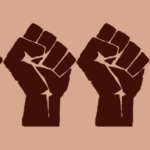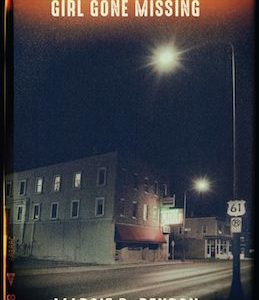Nicholas Mancusi’s debut novel, A Philosophy of Ruin is a fantastic exhibition of the human spirit against one of the most essential philosophical quandaries of humankind: self-purpose. The book’s protagonist, Oscar Boatwright, is a philosophy professor with a string of bad luck. He finds out that his mother died on the plane ride back from Hawaii. Confusion and grief collide when Oscar finds out the reason for his parents’ trip to Hawaii. Yet another evangelist preying on the depression of others, Paul St. Germaine sinks his teeth into Oscar’s impressionable mother, bleeding the family dry and leaving his father penniless. To make matters worse, Oscar hooks up with one of his students who turns out to be have possibly sinister motivations of her own. A Philosophy of Ruin is an infectious and rhythmic novel, one that exhibits a deftness that rarely is seen in a debut. I spoke with him about writing, depression, and all-things “ruin.”
Michael Seidlinger: This is your debut novel, right? I’m curious about how it all came about and whether its essential elements—the thrilling premise, our depressive yet abiding main character, Oscar, the cult leader Paul St. Germaine—arrived to you in at-once or took some time?
Nicholas Mancusi: Thank you, this is indeed my debut. I wrote it slowly, because the elements revealed themselves to me slowly. The very first thing I had was the main character’s name, Oscar Boatwright, which seemed evocative to me for some reason, and the first sentence, in which his mother dies while traveling on a plane, because I was curious about the protocol for something like that. It grew from there, scene by scene. I knew that Oscar probably shared my preoccupations, which is how the philosophy stuff made it in there, the concern with free will and morality, the specter of death. At one point I had basically the entire first half, in which Oscar’s life falls apart little by little, with absolutely no idea of what would happen next, only that I needed something to push it further to test those ideas. That’s where the elements associated with the term “thriller” came into play, the drugs, the cars chases, gun fights etc. But the project of the novel never changed for me. At the center was always the question of how we confront the problems that come with owning a mind.
Do you have any other novels that paved the way for this one, left on the cutting room floor, maybe waiting for their chances to one day see publication?
The cool answer to this question would be to say that I started and abandoned many novels before arriving at this one, burning through thousands of pages before arriving at the 256 that appear here. The truth is that this is the first novel that I’ve ever completed, and only the second or third that I started. I don’t like it, but I’m a slow writer. I get caught up on sentences, and much of the “writing” takes place far from the page, somewhere in the back of my head while I’m going about my life, the elements of the story assembling themselves, instead of me working it out in drafts. I really don’t feel like that much of an active participant in the process, to be honest. All I can do is control what goes in: what I’m reading, the movies I watch, the art and people I surround myself with. It’s not a very efficient process. For my next novel, I’m trying to speed things up a bit.
The book is incredibly bleak and yet hope (and humor) pokes through the despair like a bright light. Do you think it’s possible to write about such darkness without first having to find in it some humor?
I think it would be impossible, not because it would be unbearable to confront these ideas without the salve of humor, but because they are actually, in a way, funny themselves. Existence is a joke to me, and I mean that in the best way possible. We’re all here, billions of us, with absolutely no idea why? That’s hilarious. We’re the only animals that know that we’re going to die? What a joke. More of a cruel one, but still. Laughter is not just a reasonable response to these conditions, it’s a necessary one.
In fact, I don’t even really consider most of the ideas that people call “dark” ideas all that dark. They’re just either the case, of they’re not. You’d still experience your life in the same way, regardless.
Let’s talk philosophy. Okay, so we’ve got Paul St. Germaine and his “sermons” which orbit the idea of there being no such thing as free will, and the real release is “accepting one’s insignificance.” We’ve got the methodical antagonist drug trafficker Matadamas who spends as much time discussing human insignificance as he does the brutal-creativity of his executions. And then we have Oscar, a going-nowhere 22k a year making adjunct philosophy professor. How do these layer together into a true “philosophy of ruin?”
One of the centers of gravity in the novel is a classic question of philosophy, which is that of free will versus determinism. There’s a potential version of the book that I considered trying to write in which those ideas are spelled out more formally, like they would be on a chalkboard in a philosophy class. But since I’m a fiction writer, and not a philosophy professor like Oscar, I chose instead to embody those ideas in characters who then compete, in a way, to lay claim over Oscar’s belief system.
St. Germaine is offering the relief of determinism, namely, if the course of all events, including those of our life, is entirely out of our hands, then we have no real reason to worry, since there’s nothing to be done. Matadamas on the other hand believes that he was dealt a certain poor hand in life and changed it via the force of his will. Oscar is twisting somewhere in the middle. On paper in his professional life, he’s a proponent of compatibilism, which is a line of inquiry that tries to rectify free will and determinism somewhere in the middle, but I suspect that he’s not fully confident. Personally, I hope very much that it is the case that we have free will, since every conception of morality and responsibility seems to ride on it, and I don’t just mean in a legal sense but also what it means to be a good person, who deserves the promise of heaven. But the evidence seems scant!
What is it about despair and road-trips? I swear, no matter what the nature of the road trip, if it’s part of a novel, the trip acts as the seat of a character’s emotional plight.
Road trips, proper ones of let’s say forty hours or more, have a distinctly American flavor, and road travel, which I love, often makes me wonderfully depressed. Walking the fluorescent aisles of some heinous convenience store in some heinous rest stop off I-95 on a Sunday evening, returning to the city after a long weekend doing something fun? As far as melancholy goes, that is the absolute good shit.
When I was 24, a friend and I took six weeks and did a loop of the country from NY to SF and back, staying in motels or crashing with friends where we could. It was one of the best adventures of my life, and much of that experience made it into this book. But I remember it included one of the deepest moments of despair I have yet to experience. We were somewhere is West Texas, headed home, a few days before Christmas, with a very long way to go. Morale was low, and we were unsure where we were going to sleep that night. We pulled into this weird little roadhouse to get supplies, and on this enormous TV that was set up in the middle of the store, Fox News was reporting on the shooting in Sandy Hook, which is how I learned that it had happened that morning. And in this bizarre moment that I’ll never forget, this dude who was I guess the chef brought a baked potato that someone had ordered out on a plate, and he was so proud of it that he showed it to me as he passed. “Look at that bad boy. Fully loaded.” Right then I felt the full awfulness of life settle into me like a physical sickness, and my soul cried out for salvation. It’s this kind of blend of horror and humorous absurdity that I think defines life on earth. The feeling lasted for about a day.
St. Germaine’s sermons are full of rhetorical questions and anomalous declarations. While I breezed through the novel, I briefly entertained the idea of just asking you nothing but those questions and seeing what you’d say. I won’t… but I also kind of want to hear your reactions to a few: 1) If we don’t possess this thing called free will, then every time you’ve made a moral decision, you actually have nothing to feel good about. 2) You are the only person you can be.
I didn’t realize this until sometime later, but the St. Germaine sections are based on my own internal monologue during the years right after college when I spent a tremendous amount of time worrying about the future. I used the promise of determinism to convince myself that I was not responsible for my own fate, that things would either work out okay or they wouldn’t, and it was mine to wait and see. This a simplification of the idea, but in the hours I spent awake at night, wondering what would become of me, it was a comfort. Of course, in actual fact, I’ve tried like hell to steer the events of my life, to become the person I want to be, not “the only person I can be.” But that’s not exactly how free works, either.
I still worry about the future, but a bit less. Perhaps because I have less future left in front of me.
The novel has real momentum, that rush and page-turner speed that the best crime reads have. Some of this was achieved due to the razor-sharp sentences, split down for impact, and the short chapters; however, there’s something that you achieved extremely well here that usually does the opposite for momentum: internal monologue. Splayed across every chapter are frequent interludes where we see Oscar running through cause and effect, contemplating his next move. Can you talk about how you were able to use the internal as a means of external momentum?
I wanted the accelerating chaos of Oscar’s external situation to mirror the turmoil of his internal state. Ideally the two modalities, the plot and the introspection, should work in tandem, instead of handing off to each other, a break in the feeling for a little plot, a break in the plot for a little feeling.
When I write, I want there to be very little wasted air. So if I stop to dive into the mind of a character, it better be for a good reason. In this novel, Oscar is really the only character who has his internality make it onto the page, as he struggles to make the right decision in a very trying set of circumstances. So, I hope, the reader experiences the story as if they are in Oscar’s head, rather than floating above it.
Personally, like Oscar, I veer towards over-thinking decisions, and err towards the over-cautious. Writing this novel was a fun way to take a character who resembles myself in many ways, and place him in the kind of disaster that I hope to never find myself in. This is very much a “first novel” thing, that I (probably) won’t be doing again. But that being said, we’re all going to have to face some disaster sooner or later. I wrote this book as a kind of pre-rehearsal for that.
Everyone has their limit, their breaking point. In the novel, we see Oscar’s plain and simple—loss of a mother, depression, blackmail, financial destruction. This one’s a two-part: 1) Do you think everyone has their breaking point and 2) what’s yours (no pressure).
I’m not sure that everyone has a “breaking point” so-to-speak, but everyone does, eventually, break. In a way, I admire Oscar for pushing back against entropy.
If it were me, I might have just watched it roll in.

















